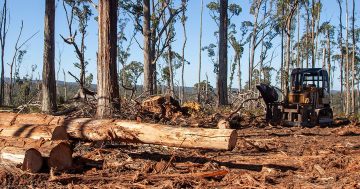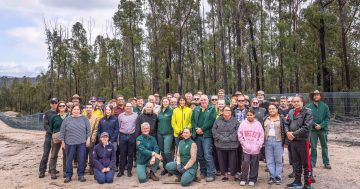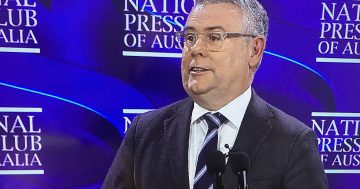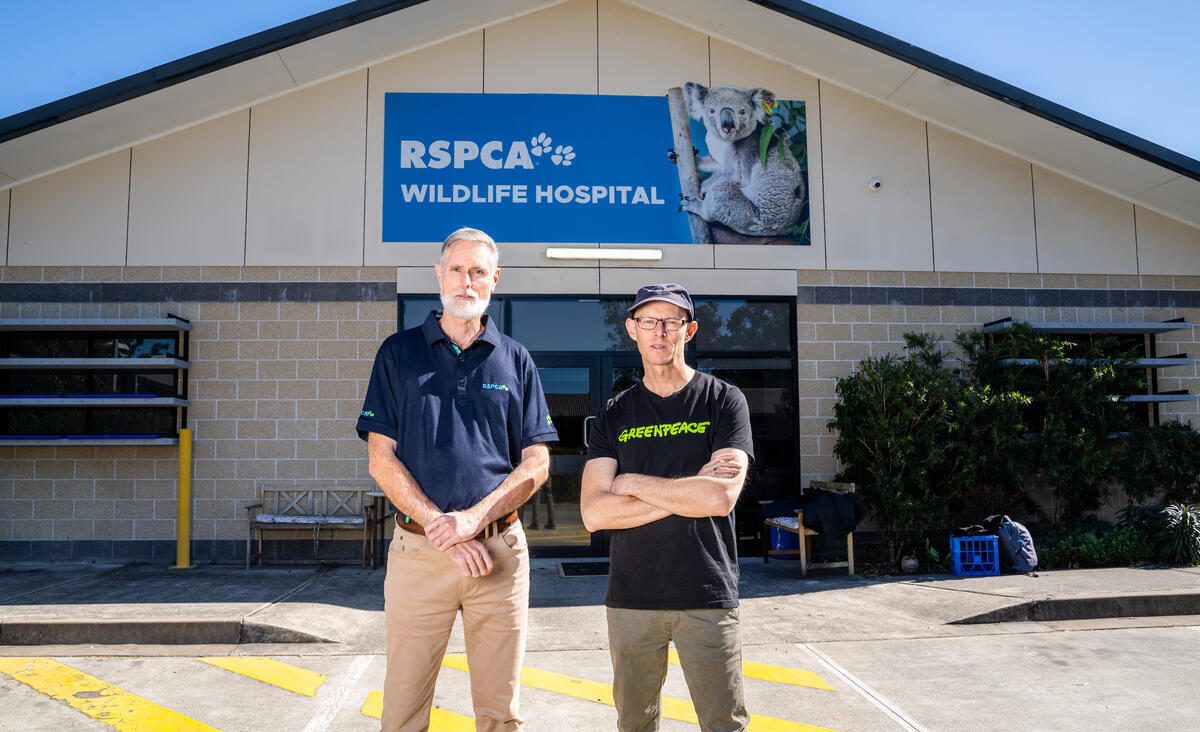
RSPCA Queensland wildlife veterinary director Tim Portas and Greenpeace Australia/Pacific CEO David Ritter outside the animal welfare group’s wildlife hospital in Wacol, Brisbane. Photo: RSPCA QLD.
Eight animals and five plants have been added to Australia’s threatened species list in the past month, largely due to deforestation, which a report says displaces, harms or kills 100 million native animals every year.
All the new animal listings are under threat from habitat destruction or degradation, according to the Australian Conservation Foundation (ACF). The organisation’s list now hosts 2224 species as being under threat of extinction, with 2023 the largest year of growth since it was established.
Before these listings, the joint report from Greenpeace Australia Pacific and RSPCA Queensland uncovered that the damage from deforestation on native animals in Queensland and NSW was double previous estimates. Between 2016 and 2021, 2.4 million hectares of forest and woodland habitats were bulldozed or cleared – more than twice the size of greater Sydney.
RSPCA Queensland’s wildlife veterinary director Dr Tim Portas said little had improved for wild animals since the last report on the crisis in 2017.
“Unfortunately, a significant proportion of the 24,000 wildlife patients admitted each and every year to our wildlife hospital are a result of the long-term and ongoing effects of habitat destruction and fragmentation,” he said.
A key driver in Australia’s deforestation is the development of livestock pastures for beef production, making up 90 per cent of the bushland destruction recorded over the 2016-2021 period. However, urban development and forest logging also contribute.
The average of 24,000 native animals rescued or admitted into RSPCA Queensland’s care annually includes more than 500 koalas. Some 1200 koalas are killed every year by deforestation.
The RSPCA and Greenpeace are calling for stronger nature laws, saying the existing ones are inadequate to prevent forest destruction’s impacts on native wildlife.
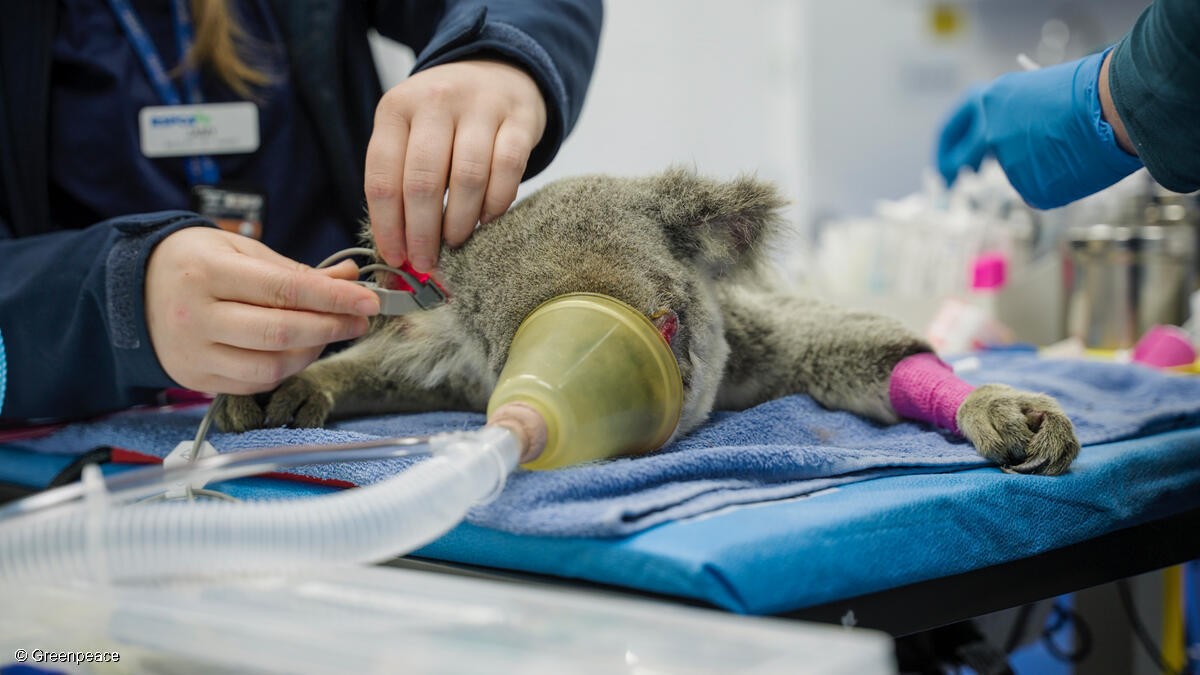
The joint report between RSPCA QLD and Greenpeace Australia Pacific reveals that 100 million native animals are killed, injured or displaced every year by deforestation. Photo: Greenpeace.
The Australian Koala Foundation (AKF) has also released its research findings on the national logging industry, with chair Deborah Tabart OAM calling for the urgent repeal of Regional Forest Agreements (RFAs).
“RFAs are the best friend of Australia’s logging industry,” Ms Tabart said. “They have not only proven to be a toothless tiger for biodiversity conservation, but also the single biggest risk to the survival of Australia’s beloved koalas.
“The Australian Koala Foundation will not rest until RFAs are repealed and a Koala Protection Act is enacted.”
According to the AKF, RFAs are agreements between the federal and state governments that can override the Environment Protection and Biodiversity Conservation Act 1999. They can authorise the logging of native forests on public and private land, and even within national parks, without following the usual environmental approval process.
Ms Tabart said she had written to Prime Minister Anthony Albanese on repealing RFAs, which have just been extended in NSW until 2039.
“It is laughable to think that the proposed Great Koala National Park could have any impact whatsoever when RFAs continue to condone the decimation of trees within its boundaries,” she said.
“The logging industry has such a stronghold over our political leaders that the wellbeing of endangered species and their habitat is entirely overlooked.”
Ms Tabart urged the people of Australia to join the AKF on 1 September as it returns to the streets of Canberra for its inaugural Koala Army March for Creatures Great and Small.
“The march will be a joyous celebration of koalas and all Australian wildlife, underpinned by a strong message that the people of Australia demand that wildlife habitat is legally protected,” she said.


